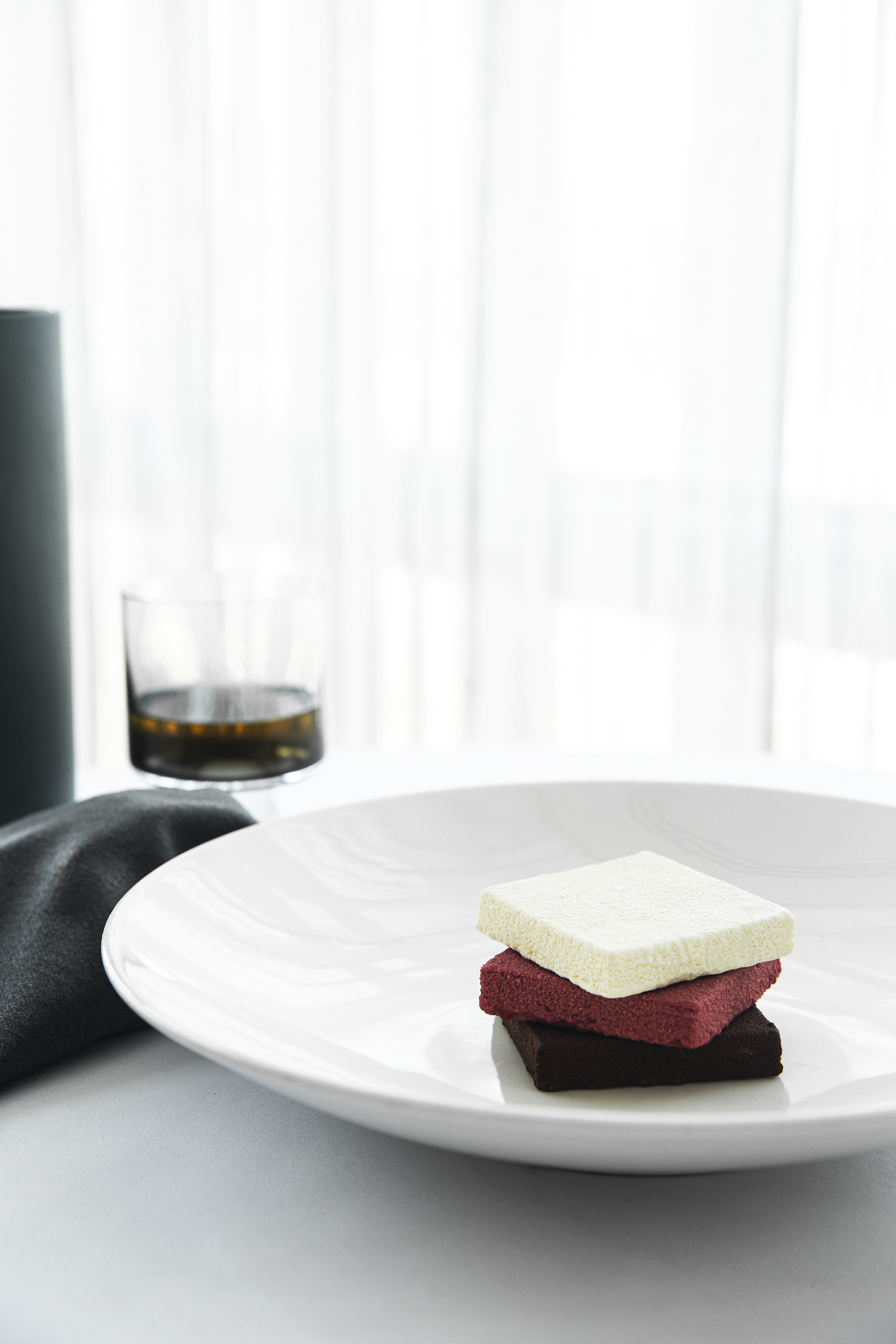Perfect Your Baking Skills

While Stokehouse remains temporarily closed, Group Pastry Chef, Lauren Eldridge, like many of us, has been spending her time in lockdown doing what she loves most, cooking. From pizza dough to sourdough croissants, Lauren give us an insight into what she has been cooking during lockdown, as well as her top tips for perfecting your baking skills at home.
“Much like the stages of sanity through lockdown, my baking and the things I have been cooking have changed.
There have been weeks of productivity, motivation and commitment. In the last week, I made homemade passata and a pizza dough, which took two days to prove. There was the week of new hobbies and experimentation, which led to sourdough croissants and two loaves of malted rye sourdough. I also trialed new recipes for chocolate caramel eclairs and a vanilla custard (thankfully, it was also the week we could find more flour in the shops)..There were the holidays, a time for hot cross buns and Anzac biscuits, and lastly, there have been the weeks of missing my family and wanting comfort food that reminded me of home. Think triple chocolate chip brownies, peanut butter cookies and a classic lemon drizzle cake.
I have enjoyed having the time to reconnect with my love of home baking, but I can’t wait to once again, share my cooking with family, friends and customers.”
Top 10 Tips for Baking at Home
Follow the recipe
While savoury cooking has a lot of room for improvisation, most baking and desserts rely heavily on precisely following a recipe (particularly if you are just starting out).
Read all the instructions first
You don’t want to get halfway through a recipe and realise something should have been started the day before.
Accurately weigh all ingredients before you start
This makes the mixing and assembling much easier. Plus, you can pretend that you’re on a cooking show with all the little glass bowls around you (and use your baked goods to bribe someone else to do the washing up)
Take time to properly grease and line your cake tins
There is nothing worse than going to all the effort of making a delicious cake or slice, only to have it stick to the tin and fall apart when you try to get it out.
Preheat your oven
This should be the first step in any recipe. I always add an extra 5-10°C when preheating, to allow for the heat that escapes when loading the oven. Once the item is in, be sure to turn it down to the specified temperature.
Have ingredients at the correct temperature
If the recipe calls for room temperature eggs of softened butter, it’s important to follow this step. In the case of butter and eggs, this helps with the emulsification process and stops the ingredients separating. It can sometimes be fixed, but the texture of your baked goods will still end up being tough or chewy.
Sift dry ingredients
Lumps of flour will not break apart easily once mixed with the wet ingredients, resulting in undercooked lumps of cake or worse, a whole lump of raw flour. Sifting also helps to evenly distribute ingredients, such as baking powder or salt, and ensures no added surprises are baked into your cake.
Patience
I know that this can be a tricky one but once your cake is baked, you want to leave it to cool before you cut it. Cooling cakes ensures the internal crumb is set so it doesn’t fall apart after the first slice. Heavy cakes, such as mud cakes, need to be cooled in the tin while light cakes should be immediately turned out of the tin and cooled on a wire rack so the cake does not dry out.
Low & Slow vs. High & Fast
If you have a very wet mixture, such as brownies or flourless cakes, it is best to bake at a lower temperature (around 150°C – 160°C) for a longer time (usually between 50 – 90 minutes), while light mixtures, such as sponge cakes, should be baked at a higher temperature (190°C – 200°C) for less time. Dense cakes need more time for the heat to reach the centre of the cake. In more dense cakes, a higher temperature will burn the outer edges and leave the centre raw whereas light batters will dry out, if left in the oven for an extended period of time.
Bake what makes you happy
Don’t feel like you need to make the most complicated recipe you can find for it to be satisfying. The simplest recipes can sometimes bring the most joy – I love nothing more than making a great chocolate chip cookie.
